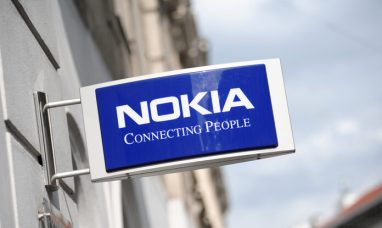A new weight-loss drug from Swiss pharmaceutical giant Roche Holding AG has shown promising early-stage data, causing a stir in the pharmaceutical market. The drug, CT-996, is a once-daily pill that delivered a placebo-adjusted mean weight loss of 6.1% in a Phase 1 trial involving patients with obesity but without type 2 diabetes. This encouraging result has sent shares of rival GLP-1 developers Eli Lilly and Company (NYSE:LLY) and Novo Nordisk (NYSE:NVO) downward.
Market Reaction to Roche’s Breakthrough
Shares of Roche surged more than 6% in Swiss trading as of 10:15 a.m. ET on Wednesday, reflecting investor optimism about the potential of CT-996. In contrast, the U.S. market saw a decline in shares of Eli Lilly and Novo Nordisk, with Eli Lilly’s stock dropping more than 3% and Novo Nordisk’s shares falling about 4% shortly after the markets opened. Eli Lilly is known for its Zepbound drug, while Novo Nordisk produces Wegovy, both of which are significant players in the weight-loss drug market.
Strategic Acquisition Bolsters Roche’s Pipeline
Roche’s acquisition of weight-loss drug developer Carmot Therapeutics last December played a crucial role in adding CT-996 to its pipeline. This strategic move also brought another promising drug, CT-388, an injectable treatment for obesity and type 2 diabetes, into Roche’s fold. In May, Roche unveiled early-stage data for CT-388, further emphasizing its commitment to expanding its portfolio in the weight-loss and diabetes treatment markets.
CEO’s Insight and Future Expectations
Despite the promising early results, Roche’s entries into the weight-loss drug market are not expected to be available for several years. Chief Executive Officer Teresa Graham acknowledged this timeline in an interview with CNBC, stating that while the initial data is encouraging, the drugs are still in the early stages of development. The long road to market readiness underscores the rigorous testing and regulatory approvals required for new pharmaceuticals.
Impact on Competitors and Market Dynamics
The promising data from Roche’s CT-996 has created ripples in the market, notably affecting the stock prices of its competitors. Eli Lilly and Novo Nordisk, both leaders in the GLP-1 segment, are feeling the pressure as investors weigh the potential impact of a new player in the market. The competitive landscape is being reshaped as companies strive to innovate and maintain their market positions amidst emerging treatments.
Broader Implications for the Weight-Loss Drug Market
The development of CT-996 highlights a significant shift towards non-injectable weight-loss treatments, which could appeal to a broader patient base seeking convenience. The weight-loss drug market is fiercely competitive, with increasing demand driven by rising obesity rates globally. Roche’s foray into this market with a promising non-injectable option could drive further innovation and competition, ultimately benefiting consumers.
Conclusion
Roche’s new weight-loss drug, CT-996, has shown promising early-stage results, creating a significant impact on the pharmaceutical market. The ensuing market reactions, with Roche’s stock rising and competitors Eli Lilly and Novo Nordisk experiencing declines, highlight the competitive nature of the industry. While the drug is still years away from being available, its potential adds a new dimension to the weight-loss treatment landscape. As Roche continues its development efforts, the pharmaceutical industry will be closely monitoring these advancements, anticipating the broader implications for market dynamics and patient care.
Featured Image: Freepik









